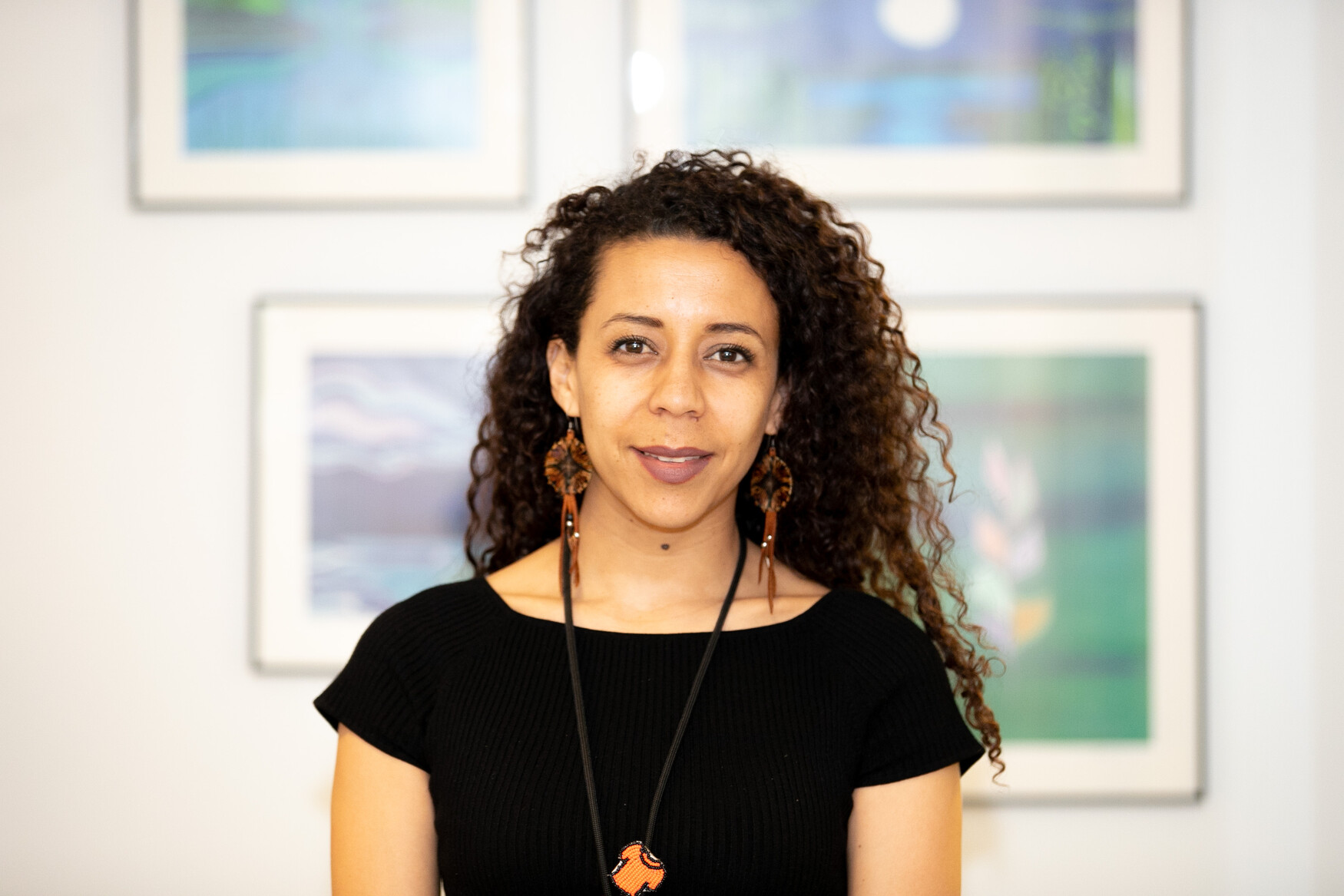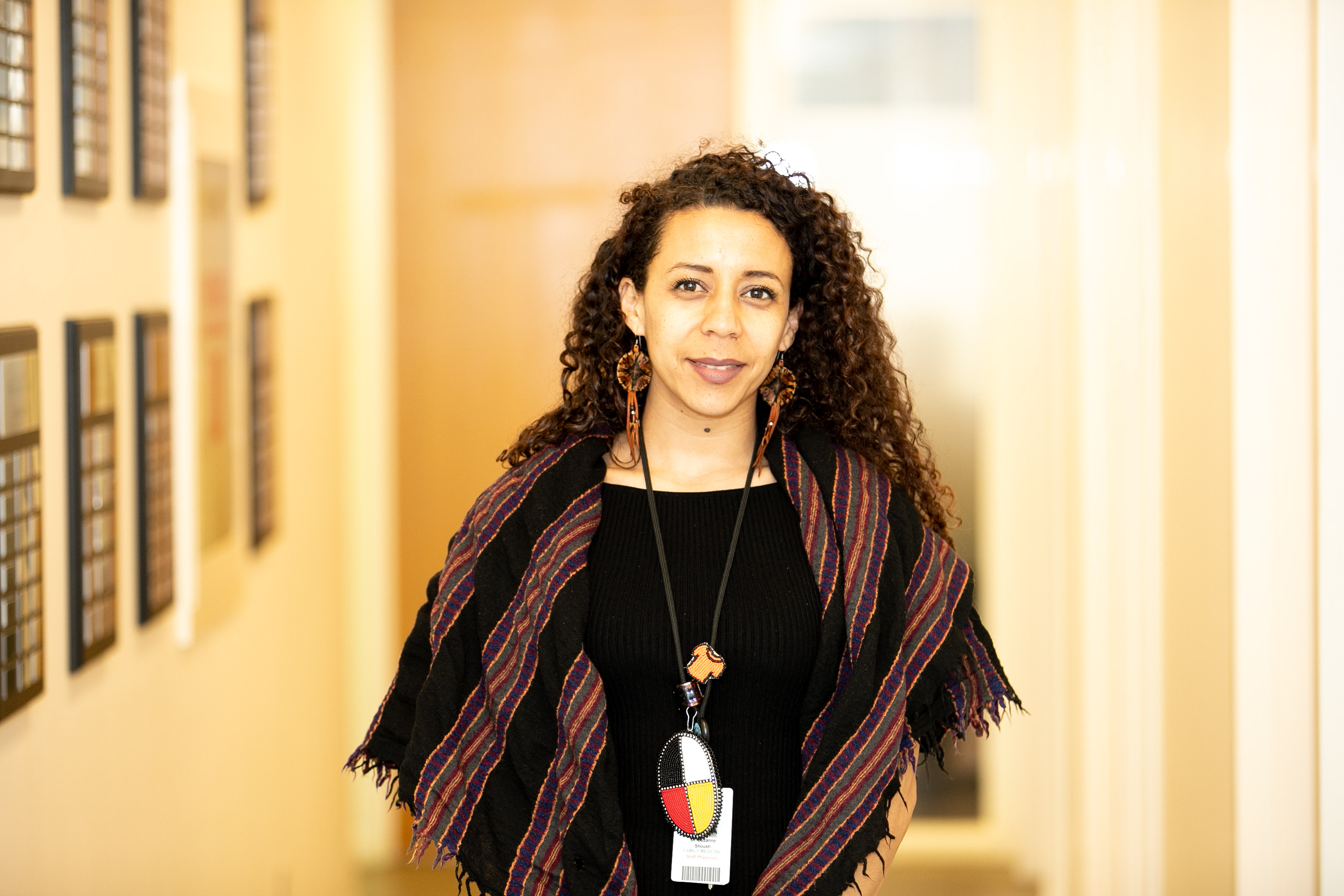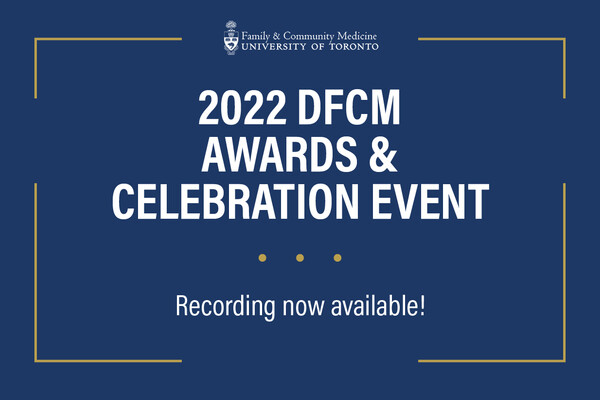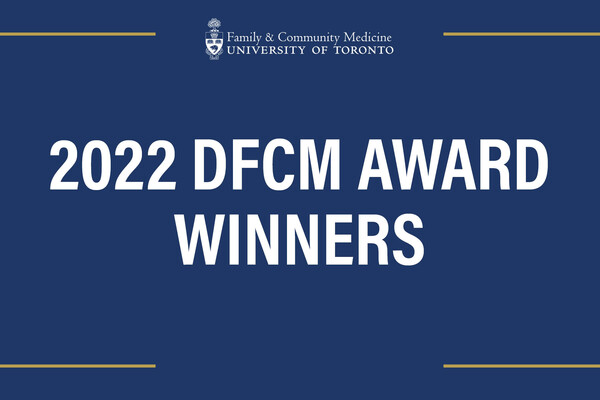First Indigenous Health Lead Part of Department’s Response to the Truth and Reconciliation Commission

 Dr. Suzanne Shoush is now the University of Toronto Department of Family and Community Medicine (DFCM)’s first-ever Indigenous Health Faculty Lead. In her role, Dr. Shoush will work with DFCM faculty, residents, students and staff to develop and implement an integrated and accountable plan for the department to respond to the needs of Indigenous communities it serves.
Dr. Suzanne Shoush is now the University of Toronto Department of Family and Community Medicine (DFCM)’s first-ever Indigenous Health Faculty Lead. In her role, Dr. Shoush will work with DFCM faculty, residents, students and staff to develop and implement an integrated and accountable plan for the department to respond to the needs of Indigenous communities it serves.
“It’s an honour to take on this role,” says Shoush. “I think it’s a great step for our department and I hope I can help make some big strides forward.”
The position was created in response to the Truth and Reconciliation Commission of Canada Calls to Action (TRC-CTA) around health and primary care, which calls for the elimination of the significant disparities in health outcomes faced by Indigenous People. It includes calls to provide cultural competency training for all health care professionals and for medical schools in Canada to teach about the root causes of inequities in health and human rights.
Dr. Shoush grew up in Alberta. Her mother is a constitutional lawyer of Coast Salish Heritage from the Douglas First Nation in British Columbia, and her father is journalist and writer from Sudan. While she is now a family physician at St. Michael’s Hospital, she admits that family medicine was not her first calling: she had the beginnings of a successful career in biomedical engineering before going to medical school at the University of Alberta.
“When I was studying and practicing engineering and medical physics, I always had an interest in global health and did a lot of work in the area internationally,” says Dr. Shoush. “It was my research supervisor at the time, Dr. Calum MacAulay, who convinced me to apply to medical school where I ended up finding some incredible family medicine mentors there who showed me how powerful family medicine could be.”
After completing her residency at St. Michael’s Hospital in Toronto, Dr. Shoush spent nine years doing locums in Northern Ontario treating diverse populations while also working with the Inner City Health Associates in downtown Toronto, eventually becoming a family physician and faculty member at St. Michael’s Hospital in the fall of 2018.
During her time at St. Michael’s, she worked with a strong interdisciplinary team to develop an advocacy campaign entitled “Healing our Roots: An Equity Approach to Reconciliation”. The goal of the Campaign is to take concrete steps within the Family Health Team to create and become champions of culturally safe spaces and practices to promote the highest level of inclusion possible for Indigenous patients. This involves making Cultural Safety Training available to all staff, working to develop partnerships with community stakeholders, consulting with Knowledge Keepers and Elders surrounding Reconciliation, and working with local artists to bring Indigenous art into clinical space.
“Only a small percentage of our primary care patients are Indigenous, or are comfortable to self –identify as Indigenous which raises a concern of exclusion. It’s important to understand how we can remove barriers that contribute to the exclusion of these patients,” says Dr. Shoush. “We know the stats we see today in Indigenous Health inequities are a direct result of laws, policies and societal structures which perpetuate marginalization and disenfranchisement. We want to work on changing this.”
Dr. Shoush will work closely with the DFCM Chair and Vice Chair of Global Health and Social Accountability, the Indigenous Health Research Lead, Dr. Janet Smylie, and Chiefs of DFCM’s teaching hospitals.
As one of her first steps in the role, Dr. Shoush is currently taking time to read and ensure she fully understands the Truth and Reconciliation Commission’s recommendations, and more recently those from the National Inquiry into Missing and Murdered Indigenous Women, so she can better understand what it will truly take to meet them. She is working to include the input and expertise of a diverse group of Indigenous Community stakeholders and Knowledge Keepers. She is also planning to visit DFCM’s academic teaching sites to learn more about what is already being done in Indigenous health by faculty, residents and students and others, and listen to what is needed to support the DFCM in meeting obligations.
“While we don’t have a large number of Indigenous faculty and students, I do know that great work is being done already. I need to understand where the gaps are at each site and how I can help them move forward in this area.”
For Dr. Michael Kidd, the Chair of DFCM, having Dr. Shoush in the role is a major step toward the department becoming a more culturally safe space for Indigenous faculty, residents, students and, ultimately, patients and their families.
“I want our department to be the go-to place for Indigenous students and residents,” says Dr. Kidd. “This means providing spaces where they feel comfortable and where everyone has a deeper understanding of our Indigenous colleagues and patients.”
Dr. Shoush is also DFCM’s winner of the 2019 Louise Nasmith Award. Her project, an environmental scan of the department’s practices, policies and strategic initiatives regarding Reconciliation, aligns well with the new role.
“The health care inequities faced by Indigenous Peoples are unacceptable and I think Dr. Kidd and the entire department are saying that we are ready to make changes that will reflect our dedication to health equity,” says Shoush. “There is so much opportunity here to be leaders and champions in reducing the inequities faced by Indigenous People in Canada – I hope I can help DFCM lead the way.”
Dr. Shoush began her three-year term in May of 2019.
News


